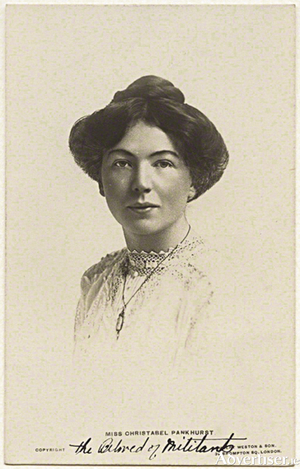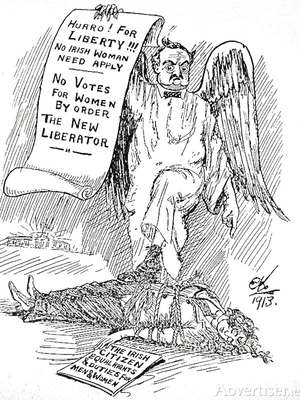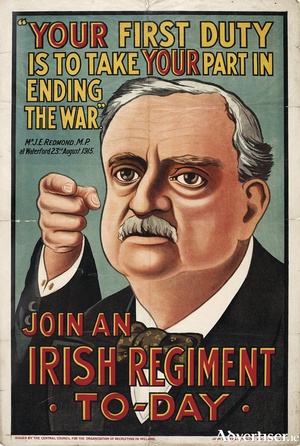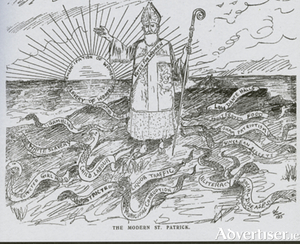Search Results for 'Irish Parliamentary Party'
23 results found.
The awaking of Augusta …A creative life
Augusta Lady Gregory, and her husband Sir William, were away in Italy in May 1888, when her former lover Wilfrid Scawen Blunt was imprisoned in Galway for participating in an anti-eviction rally at Woodford the previous October. I described last week, that within two days of her return to Galway she visited his empty cell, and remained sometime.*
Christobel Pankhurst tells Galway audience: ‘Now is the time’

At a time of feverish debate about Home Rule, and noisy Sinn Féin meetings, the fact that Christabel Pankhurst addressed a well attended meeting in Galway’s Town Hall on October 21 1911 was an important event in the political history of the town.
How could ‘hysterical’ women be allowed to vote?

Home Rule, the campaign for self-government for Ireland within the United Kingdom, was the dominant political movement of Irish nationalism from 1870 to the end of World War I. It dominated all local and national papers in Ireland. Men fiercely argued its pros and cons while Ulster protested that if Home Rule was introduced it ‘would fight, and Ulster would be right.’
Lessons from ‘an old schoolmaster’
Week III
Éamon de Valera enters the Irish political stage

On June 7 1917 Major Willie Redmond, MP for East Clare, was killed in action leading the Royal Irish Brigade to victory at the Battle of Messines Ridge at Ypres. A member of the Irish Parliamentary Party (his brother John was party leader), he had represented East Clare at Westminster for 25 years. At 53 years of age Redmond was too old to be a soldier. But he was convinced that an Ireland loyal to the Crown would succeed in achieving Home Rule, and so he joined the Irish troops at Flanders.
A letter sent to GA Hayes-McCoy

One hundred years ago there were a series of truly terrible battles on the Western Front which were watched anxiously in Ireland as elsewhere. On June 7, near the Belgian village of Messines, the Allied army won a substantial victory. It gave hope, which turned out to be tragically false, that perhaps this was the beginning of the end of the war. With the capture of the Messines ridge, the Allies were confident they could clear a path all the way down to Passchendaele, and capture the Belgian coast up the Dutch border.
The Mayo member and the maid

John Deasy was on one of his regular trips to London. While carrying out his duties as the member of parliament for the constituency of Mayo West, Deasy was a frequent lodger at Mrs Postlethwaite’s boarding house at 75 Warwick Street, Pimlico, where he occupied a back room on the top floor. After a busy weekend, the tired 37-year-old MP returned to his room on the evening of Sunday, 4 June, 1893. One candle burned on the table by his bed, emitting limited light. It being a late hour, Deasy rang the service bell in order to request his supper. He walked on to the landing to meet his familiar servant girl, Ellen Lewis. Lewis was a girl of 16 years of age and by his own account, Deasy had always considered her a virtuous and modest girl. But, whether through boredom or through more corrupt thoughts, Lewis’ angelical qualities had not prevented the married Deasy from flirting with the young maid during previous stays.



